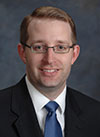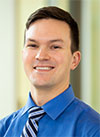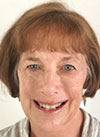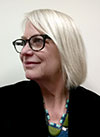Here are the Communications Committee’s annual top 2019 articles, recognizing writing excellence in Wisconsin Lawyer articles. The top article receives the Hon. Charles Dunn Author Award.
Best of the Best: Winning a Case with Effective Motions
 Article: “Threshold Issues in State Court Civil Litigation” (Jan. 2019)
Article: “Threshold Issues in State Court Civil Litigation” (Jan. 2019)
Award: Hon. Charles Dunn Author Award
Author: Douglas Hoffer
Judge’s comments: Once almost taken for granted, threshold issues are becoming more and more important as pleadings are scrutinized and cases are decided by motions. This thorough and practical look at case law surrounding plausibility pleading, court competency, and standing is beneficial for legal practitioners across the state and beyond.
Hoffer, Marquette 2010, is an Eau Claire deputy city attorney.
Four Articles Deserving Special Commendation
 Article: “The Art of Communication: Neuroscience & the Law” (Sept. 2019)
Article: “The Art of Communication: Neuroscience & the Law” (Sept. 2019)
Author: Joseph A. Wszalek
Judge’s comments: Advances in neuroscientific research have improved understanding of how humans communicate. The author explains why this is good for attorneys, and outlines some key points about cognitive communication that can improve interactions with clients and others.
Wszalek, U.W. 2015 cum laude, Order of the Coif, is the director of scientific writing and scholarship at the U.W.-Madison School of Nursing. He was the inaugural member of the U.W.’s JD/PhD dual-degree program in neuroscience and the law, through which he earned his law degree and a doctorate in neuroscience. His academic research explores the intersection between cognition, the brain, and the law, with an emphasis on language and communication.

 Article: “Juvenile Lifers: Reforming Extreme Sentences” (Jan. 2019)
Article: “Juvenile Lifers: Reforming Extreme Sentences” (Jan. 2019)
Authors: Eileen Hirsch & Martha Askins
Judge’s comments: Criminal justice reform remains a hot-button issue, and this article highlights a major flashpoint – the legal and practical aspects of one category of offenders: individuals, all men, disproportionately people of color, serving life without parole sentences for crimes committed when they were minors. The authors’ thoughtful overview of the current state of the law, and their compassionate call for reform, should be a resource for policymakers in Wisconsin and beyond.
Hirsch, Virginia 1977, began a Juvenile Life Without Parole Project in the U.W. Law School’s Frank J. Remington Center in 2016. The project’s goal is to bring Wisconsin law into alignment with the U.S. Supreme Court’s decisions about sentencing of juveniles in criminal court.
Askins, U.W. 1985, is a former assistant state public defender, appellate division, and now is a clinical instructor at the U.W. Law School’s Frank J. Remington Center.

 Article: “When Measles Meets Due Process” (Nov. 2019)
Article: “When Measles Meets Due Process” (Nov. 2019)
Authors: Grant Killoran & Christa Wittenberg
Judge’s comments: Concerns about public safety during an epidemic are well-founded. However, that does not mean that we should abandon the rule of law in order to keep everyone disease free. The article provides an overview of the constitutional analysis implicated by governmental action when a contagious virus threatens public safety. Enlightening. Now that we are prepared, here’s to hoping that we find no further practical use for this article in Wisconsin.
Killoran, Minnesota 1989, practices with O’Neil, Cannon, Hollman, DeJong & Laing S.C., Milwaukee. He is the chair of the firm’s Litigation Practice Group, and represents clients in Wisconsin state and federal courts and courts throughout the country with a focus on complex business and healthcare disputes.
Wittenberg, Michigan 2012, practices with O’Neil, Cannon, Hollman, DeJong & Laing S.C., Milwaukee. She represents individuals and businesses in a variety of civil litigation matters, including complex contract disputes, shareholder disputes, and consumer litigation.
 Article: “Virtual DNA: Whole Device Authentication” (July/Aug. 2019)
Article: “Virtual DNA: Whole Device Authentication” (July/Aug. 2019)
Author: Timothy M. O’Shea
Judge’s comments: As technology advances, the rules of evidence must keep up. The author’s practical examples of whole device authentication are easy to understand and helpful. Practical articles like this keep Wisconsin lawyers coming back to WisBar, the bar’s website, looking for “that” article. Thank you.
O’Shea, U.W. 1991, is First Assistant United States Attorney, Western District of Wisconsin, Madison. O’Shea was the district’s Computer Hacking and Intellectual Property prosecutor from the inception of the program until 2018.
Write for Wisconsin Lawyer
Grow your resumé, gain important recognition, lay the foundation for being a thought leader in the profession.
We’re looking for diverse viewpoints, voices, and expertise. If you’re the go-to person on a timely subject, a thought leader, or a practical how-to-do kind of guru, we’d like to hear from you.
Contact managing editor Karlé Lester at klester@wisbar.org or (608) 250-6127. Find writing guidelines at wisbar.org/wislawmag/guidelines.
